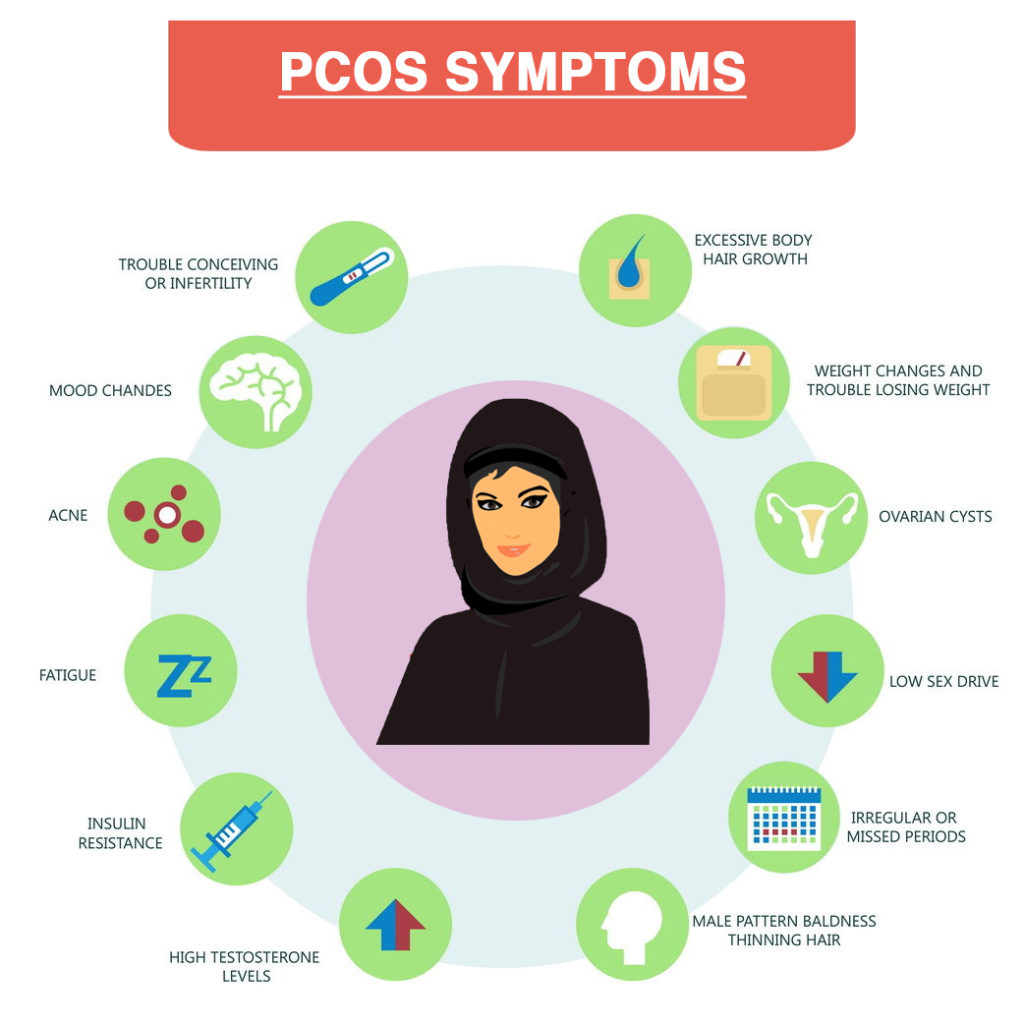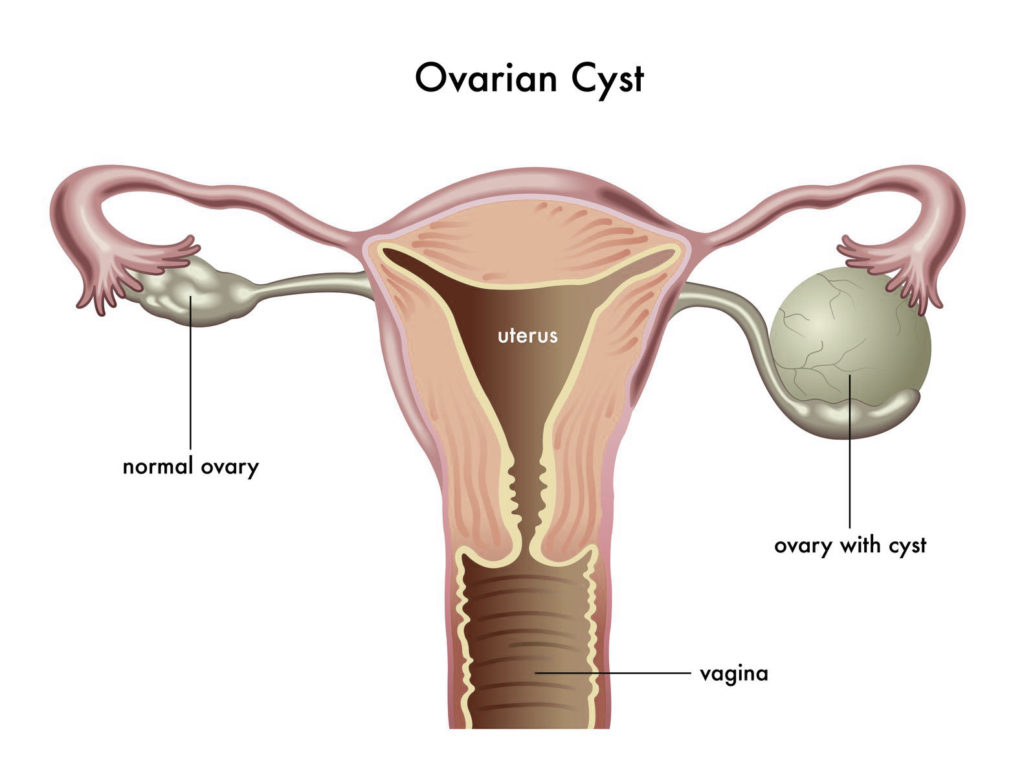PCOS (Polycystic Ovarian Syndrome) is the most common endocrine disorder among women between the ages of 18 and 44. It is a condition that affects almost 1 in 5 women and the incidence is rising. Exact cause is not known but there is genetic tendency and Life style changes are contributors for development of PCOS.
In PCOS, there is hormonal imbalance in woman’s sex hormones with increase in male hormone levels and insulin resistance in body. This leads to spectrum of symptoms in PCOS. Symptoms vary from person to person but common are Menstrual irregularities with tendency to delay menses ,missed periods or medicines to get periods ,Acne , Excessive hair growth on face ,body and hair loss on scalp ,Weight Gain and difficulty in losing weight .

PCOS also causes difficulty in conceiving and is the leading cause of anovulatory infertility. On ultrasound, there will be multiple small cysts seen in ovary like string of pearl.  These cysts are actually immature follicles. In normal menstrual cycle, follicle develops and grows to form an egg which ovulates, but in PCOS follicular development is arrested at early stage due to disturbed ovarian function and they form multiple cysts
These cysts are actually immature follicles. In normal menstrual cycle, follicle develops and grows to form an egg which ovulates, but in PCOS follicular development is arrested at early stage due to disturbed ovarian function and they form multiple cysts
How do we treat PCOS?
PCOS can be controlled mainly by Change in life style with opting for healthy food habits and regular exercise keeps normal BMI (Body mass index). Gynecologist can prescribe medicines to increase the insulin sensitivity or pills to regularize cycles.
If fertility is a concern then further treatment to form egg may be required.
PCOS not only affects appearance, fertility but has long term health risks associated with metabolic effects like developing Diabetes, High blood pressure, dyslipidemia, heart disease and also risk of endometrial hyperplasia and endometrial (womb) cancer.
Regular health checkups are recommended to control PCOS and its long term effects.